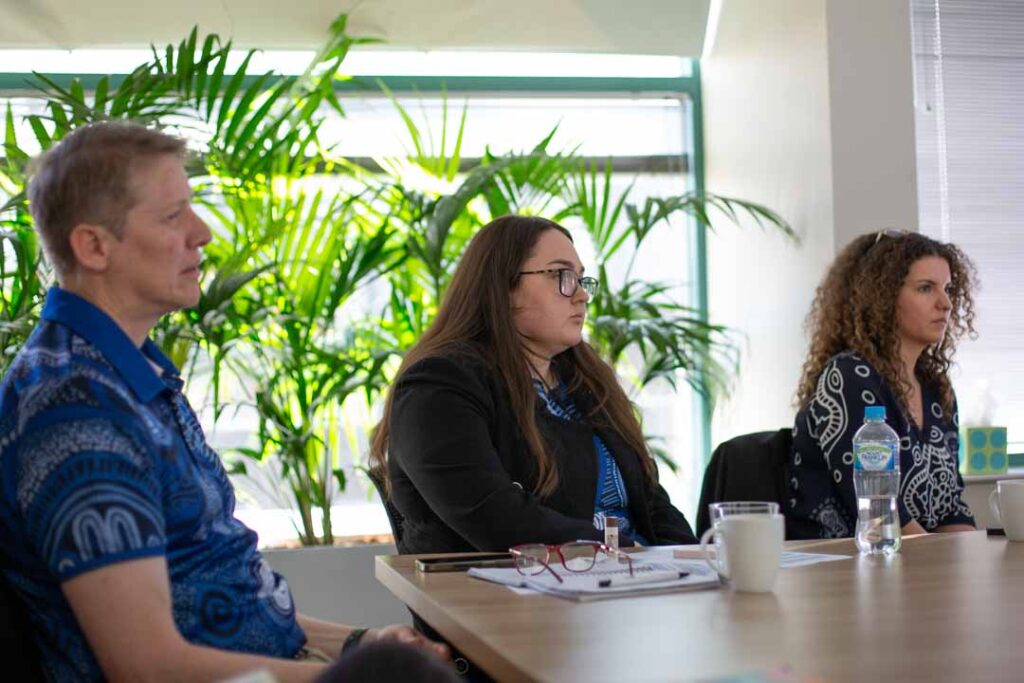Connection, culture, and comprehensive support: reshaping kinship care in Southeast Queensland

The Aboriginal and Torres Strait Islander Community Health Service (ATSICHS), based in Brisbane, is engaged in an ambitious research project through which it seeks to reshape the way that Aboriginal and Torres Strait Islander kinship care functions in local communities. The child-centric initiative is designed to break the cycle of disadvantage and provide children with the tools they need to succeed in life.
Founded in 1973, ATSICHS has a large footprint, servicing community members from the Moreton Bay region all the way down to Logan. The organisation operates medical and dental clinics, a midwifery hub, child and family health services, youth services, social and emotional wellbeing programs and services, an aged care facility, and a variety of family and child support services.
This kinship care project was funded through a 2022 Lowitja Institute Major Research Grant. It involves the development and implementation of a model that provides culturally appropriate and safe kin mapping and connection strategies for Aboriginal and Torres Strait Islander children in out-of-home care.
ATSICHS team members, Cecilia Castiello, Research Officer (Project Lead), Jonathan Leitch, Clinical Director (Co-Investigator), and Kristina Spears, Community Researcher (Co-Investigator), recently provided us with an update on progress.
‘We applied for funding in the Lowitja Institute Major Research Grant round to give us a chance to look in-depth at kinship care and the model of care that we provide, to give us a much better understanding of what the needs of community were, particularly talking to kinship carers about their experiences and the barriers and enablers they’ve faced,’ Jonathan said. ‘This has helped us put together a model that we think will be much more successful and much better look out for the needs of young people in care.’
A combination of participatory action and exploratory approaches have been undertaken, incorporating the active involvement of stakeholders, practitioners, community, and researchers, with the overall goal of delivering a high-quality, responsive service that will lead to better outcomes for community. To build an evidence base to support improved and sustainable service provision, the research team has collected the first-hand experiences of 22 past and current kin carers in Southeast Queensland.
‘We’ve been able to hear their stories and insights, and we’ve put that into a model where we might be able to change the way kinship care works in Queensland, and identify where we can improve our services,’ Kristina explained.
‘It’s really important for community controlled organisations to lead research like this, because it’s being done for our mob by our mob, in our communities where we want to see the changes. The important thing there is to capture the stories and keep them in our community and keep our knowledge where it belongs.’

‘We are custodians of the data that we collect from the community that we operate in,’ Cecilia added. ‘The community really does trust us with that data and we hope to do justice to the stories they share with us in ways that are meaningful and impactful. We’ve now finalised our data collection, we have finalised all the analysis, and we are currently underway to roll out our kinship and foster care model, and set up a monitoring and evaluation framework for that model.’
Applications are now open for our Aboriginal and Torres Strait Islander Health Major Research Grants Round 2024
Based on the ATSICHS team’s experience, Cecilia strongly encourages other eligible community controlled organisations to consider applying.
‘We thought it was a really good opportunity for us to start doing our own work, independently, without having to partner with other organisations or universities. It was a really good way for us to have an independent project.
‘We work with quite a few different funding bodies and Lowitja Institute has been one of the best; in terms of the grants process, it was very accessible and straightforward, extremely flexible – we were able to tailor it to what we wanted to achieve in our project.’
According to Jonathan, research that is led by a community controlled organisation ‘makes sure that the voices of Aboriginal and Torres Strait Islander people are heard properly, listened to and respected’.
‘This is a space where government has had a lot of control in, and the community has been left out of and feels very disenfranchised about,’ he said. ‘We’re giving that chance to understand those perspectives properly, so that the actual services that then get provided can properly meet the needs of community.’

